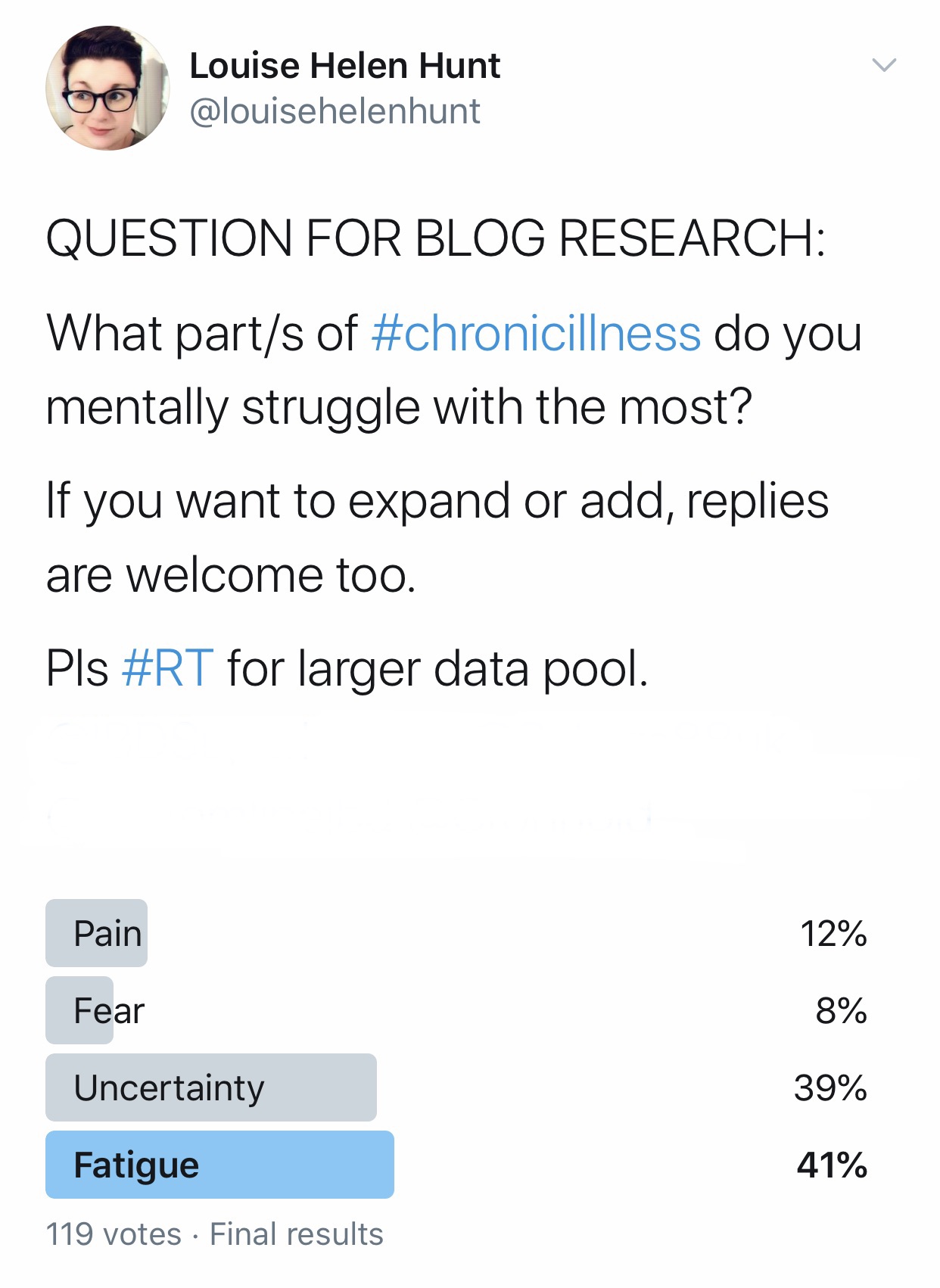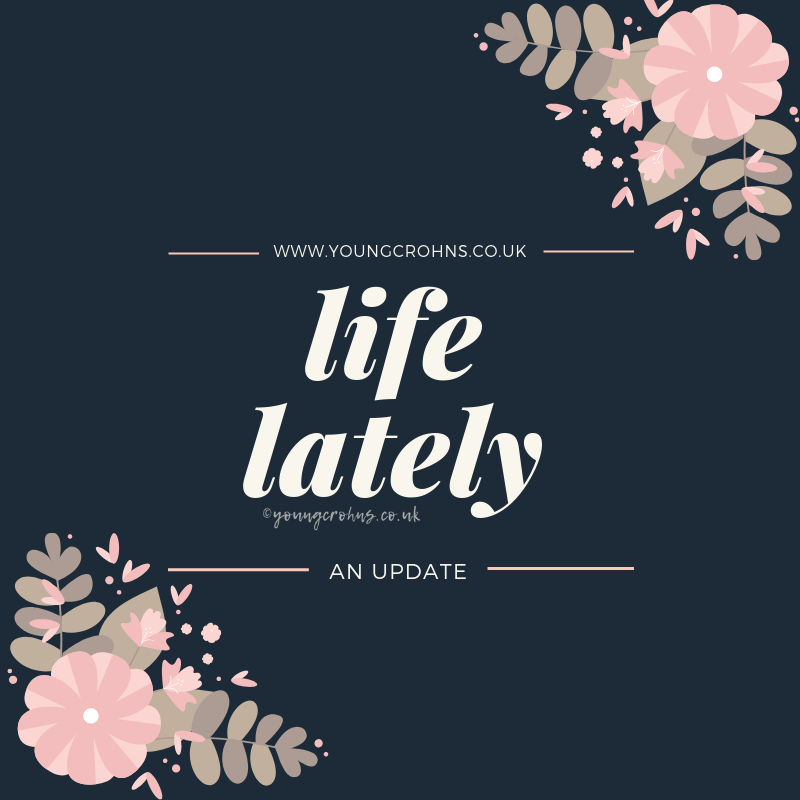
The Mental Struggles of Chronic Illness
I’ve thrown alot of curve balls lately.
So many. Too many to count.
I secretly thought this lock down malarkey was going to be a breeze – in simple terms, being at home for months on end, I’ve done that before! – but no. My disease was cackling in the background, just taunting me.
With all that’s been sent my way – thank you, whoever is up there – I began wondering what exactly was the hardest / worst / most difficult part of living with a chronic illness. Because all this ‘let’s just add one more thing to push her to the edge, test her limits‘ was really really getting to me.
I took to Twitter, asked the IBD community for their input and this is how they voted:

Thank you to those who votes and spoke to me about their experiences <3
Fatigue was the winner, with uncertainty closely behind. I had many conversations about how much fatigue impacted on daily life, as well as it’s progression through the years, even with medications such as B12 injections and practical aspects such as changes to sleep patterns and taking rest when needed. Most said this impacted work life and home life the most. More to be done, research wise, for sure.
Those who spoke to me about fear said that some of the fear was the uncertainty of the situations we faced, and once we had been there once, it was easier a second time around – ie. surgery, medications, admissions came up the most. The same was said in respects to pain – while it never gets easier to be in pain or experience it – having done it once, it was better next time around ie. advocating more better relief, earlier intervention, more honest communication.
How do we navigate through the fog of negative aspects of being sick?
It’s important to note here, that everyone is inidivual when it comes to how they experience IBD. While treatments and plans can follow a generic pathway, it is always best to seek medical advice and information from your own IBD team of specalists.
Despite being an individual disease, IBD does have alot of common ground. And dealing with the ‘negatives’ – and I quote that because it is how you personally perceive what is negative – is one of them.
Noone I know wants to be sick. Noone wants a chronic illness. It is not something that is ‘glamorous’ or ‘to collect’ – yes, some people do this – it is hard. It can run deep and long into your life, it weaves a path like a river, into your daily routine. And that constant barrage, that constant ‘battle’ is tough, even on the strongest and most experienced chronic illness warriors. It is normal and expected, that there are negatives to chronic illness life.
Dealing with them, that’s the war.
How do we cope?
- Be honest and real about the nagatives you experience.
- Speak about them, talk them out, turn them into positives.
- Accept them as what they are – know they are temporary.
- If they become permenant, work them out. Lessen their burden on your mind.
- Speak to a professional if things become too overwhelming. Talking through my own negatives from my chronic illnesses was like coming out of my body and appreciating just how MF strong I was. And can be.
Two distinct things came from poll:
- A person noted that despite having been through it before, we know we can do it again. And again, at times. But we have determination and grit to get through it.
- Another noted that it is possible that we become ‘used to’ our negatives as we get older – in age – and older in experience too. That our collective experiences impact on the community too.
Can we turn these into positives?
We sure can.
I would advocate for connecting with the community, either online or in person. Having someone else agree with your point is a wonderful feeling, even if it is about something negative. Being able to say ‘I’ve been there too! I did X, Y and Z, I hope that helps‘ is a great comfort, as well hearing those experiences too.
And remember, you are never alone with feeling negative about aspects of your chronic illness. There are thousands of us, all in this, trying to navigate how to turn lows into highs.
Do you have any questions or queries? Or just want to share your own experiences?
ou can leave me a reply here or leave comments via my social media accounts – on Twitter, find my blog page on Facebook and over on Instagram

If you enjoyed this post check out A Practical Guide to Fatigue , Iron Deficiency & IBD and High and Low Symptom Days



